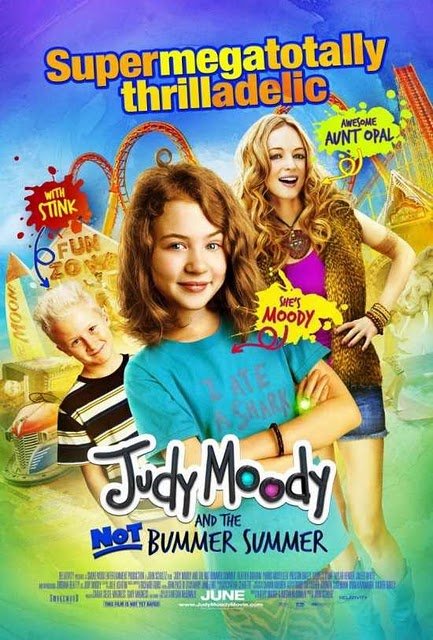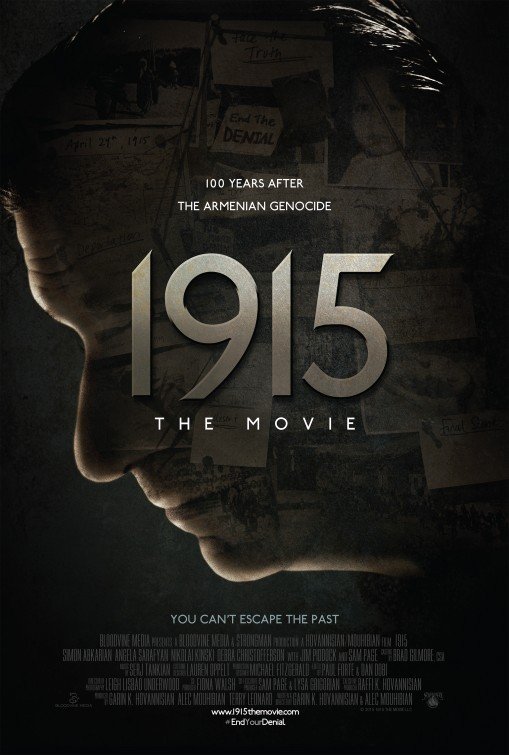“Confusing Take on Armenian Genocide”

| None | Light | Moderate | Heavy | |
|---|---|---|---|---|
| Language | ||||
| Violence | ||||
| Sex | ||||
| Nudity |
What You Need To Know:
1915 does manage to bring awareness of the Armenian genocide. It bravely tackles the subject. A few photographs depicting the suffering of the Armenians are briefly displayed. Beyond that, however, it breaks down into a confusing mess. The actors keep dropping ambiguous hints there’s more here than meets the eye, but there’s little follow-through. The movie has some violence, but nothing overtly graphic. 1915 also contains brief foul language and an offer of drug use that’s refused. All in all, 1915 warrants caution, especially for children and younger teenagers.
Content:
(RoRo, B, OO, AB, L, VV, DD, MM) Romantic, idealistic worldview about rehearsals for a play about the 1915 genocide against Armenian Christians by Turkey’s Muslim population wherein the past is recreated in a way that makes one actor believe it’s real, and the play confusingly morphs into reality at the end, with some moral elements where movie condemns immoral acts of genocide and murder, but there’s some references to the theater being haunted by the dead ghosts of the genocide, and a line in play says, “Where your husband is going, there is no God”; five obscenities; light and strong violence includes picture displayed of Armenians being hanged, woman slapped in face, and this produces blood in her mouth, sandbags fall from overhead and cut actor’s hand, death threat occurs over the phone twice, soldier in a play points gun at man’s head, child points stage gun at man, brief shot of Turkish soldiers pouring gasoline over Armenians, and a fire is heard being set with screams, Armenians are marched at gunpoint from their homes; no sex; no nudity; no alcohol; an actor offers another actor drugs to put in his food so that it’ll calm his nerves, but the drugs aren’t used; and, a soldier in a play wants a woman to leave her family behind and run away with him, and a husband mentally abuses wife by having her live like her character in the play in the name of method acting.
More Detail:
The play’s fictional director, Simon, is well known for his quirky comedies regularly performed in front of theatre audiences, but this is his first attempt at writing and directing a more serious play. His ancestors are Armenian, so he intends to honor their memory by bringing awareness of the genocide that took place in 1915.
On the day of the performance, protestors gather outside of the theatre in anger over the fact that, in the play, an Armenian woman leaves her family behind and runs off with a Turkish soldier. They feel it’s a betrayal to their people and undermines the tragedy of what their people went through in 1915. An angry man repeatedly calls the theatre and threatens Simon with a message that soon “you will lose everything.”
Simon’s wife, Angela, baffles the other actors with her authentic performance of an Armenian woman whose husband is taken away and forced to fight in the Turkish army. Little do they know that Simon has been using a method acting approach with her, making her live in the theater basement surrounded by decor and photographs that trick her mind into thinking she’s really living as her character in 1915. As a result, she’s often so distant with everyone that she appears comatose and is mentally oppressed by the play’s serious subject matter and its director, her husband. As the performance approaches, Simon reminds her, “Soon you will be free.”
Throughout the day of final rehearsals, strange things begin happening. Hints of the theatre being haunted by the ghosts of the Armenian dead occur, such as faucets turning on by themselves or sandbags falling from the trusses. Death threats begin pouring in from protestors, and a reporter from the L.A. Times shows up to question Simon on his choice of subject matter.
Tony, the actor playing Angela’s husband, starts to get agitated and neurotic as rehearsals progress. Feeling that he’s undermining the integrity of the play, Simon fires him and decides to take his place. The only one who seems to be clued into what’s truly happening is James, a movie actor eager to rejuvenate his theatrical acting chops. Slowly, he starts putting all of the puzzle pieces together and provides the means for Angela and Simon to heal from a tragedy that’s haunted them for years.
Just about the only positive thing about this movie is that it manages to bring awareness of the 1915 genocide to a mass audience that may be completely unaware that it took place. Beyond that, it breaks down into a confusing mess. The plot diverges in several different directions, contributing nothing to the movie’s central cause. The actors keep dropping ambiguous hints that there is more here than meets the eye, but there is little to no follow-through. Nothing is resolved about the ghosts haunting the theatre. The scene where Simon kicks Tony to the curb is full of high platitudes and ambivalent dialogue that only leads to perplexity about what the problem was between them. It becomes obvious Simon and Angela are suffering some kind of pain. Eventually, there is at least enough clarity to conclude that [SPOILER ALERT] they’ve been in denial about their son’s death seven years ago when he fell down the theater stairs. Apparently, Simon has been forcing Angela to live as she has in order for her to experience his grief with him. Just as one thinks they have a handle on what’s really happening, things mysteriously morph from the present into 1915 Turkey where Armenians are being herded from their homes by soldiers. Simon carries his son as a pregnant Angela watches the commotion from a distance. Leaving the entire paradigm of the movie behind like this and entering a very different reality for the final scene is quite jarring and doesn’t fit with the rest of the movie. Most viewers probably will be confused.
1915 courageously tackles the subject of genocide, and a few photographs depicting the suffering of the Armenians are briefly displayed. There is some depicted violence on stage as part of the play, but part of it takes place in the reality of the movie as well. It mostly consists of a slap or a gun pointing at someone, but the most violent moment happens off-camera when a group of Armenians are being doused with gasoline before the soundtrack plays their screams as they are burned alive.
The movie tries to inject a feeling of suspense through the death threats and the ghostly hauntings, but they actually do little to rattle the viewer’s nerves. Perhaps this is because there’s a lack of emotional connection to anything or anyone due to the aloof nature of the movie’s plot and dialogue.
In addition to some violence, 1915 contains brief foul language. There’s also an offer to use drugs in food for relaxation, but the offer is rejected. All in all, caution is advised for 1915, especially for children and younger teenagers, due to the brief problematic content and serious subject matter.


 - Content:
- Content: 




